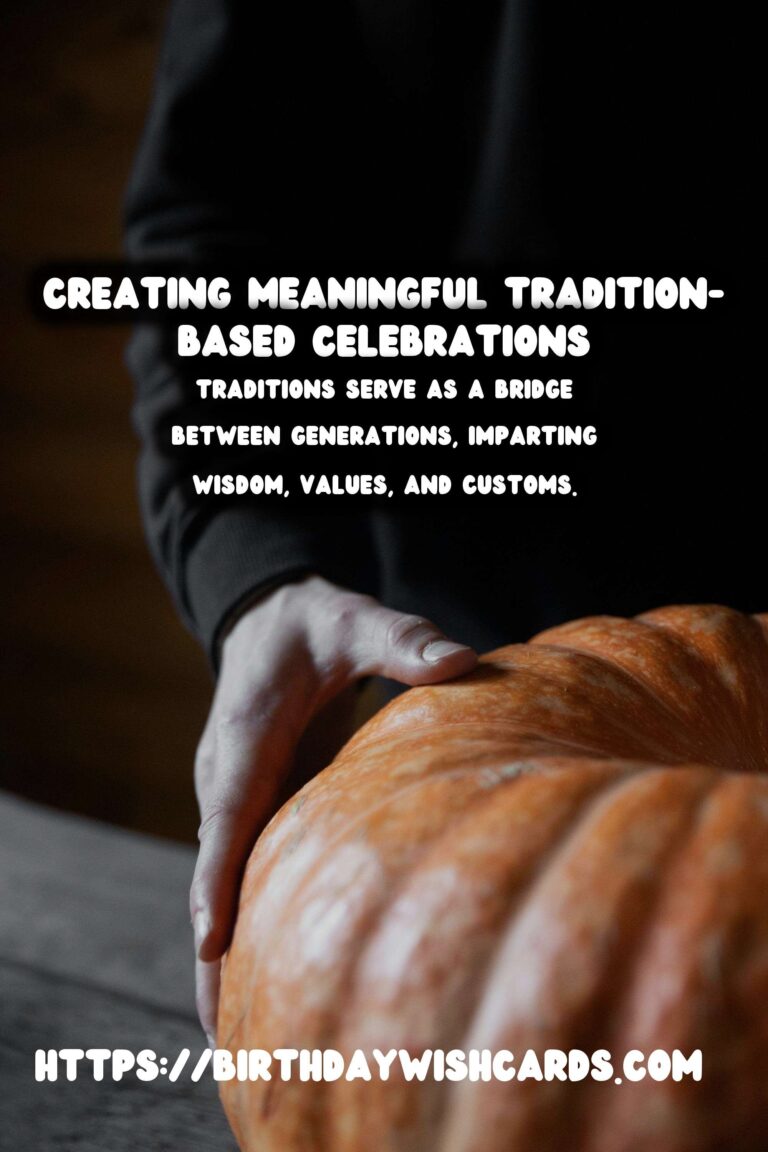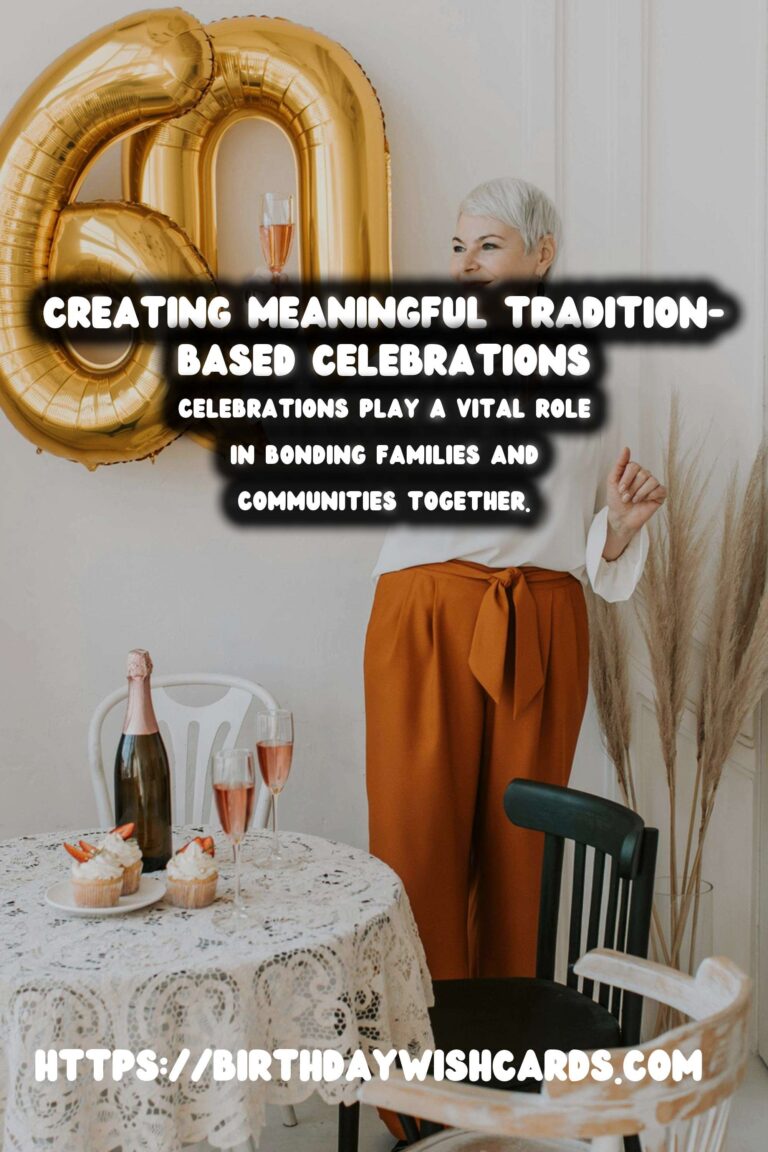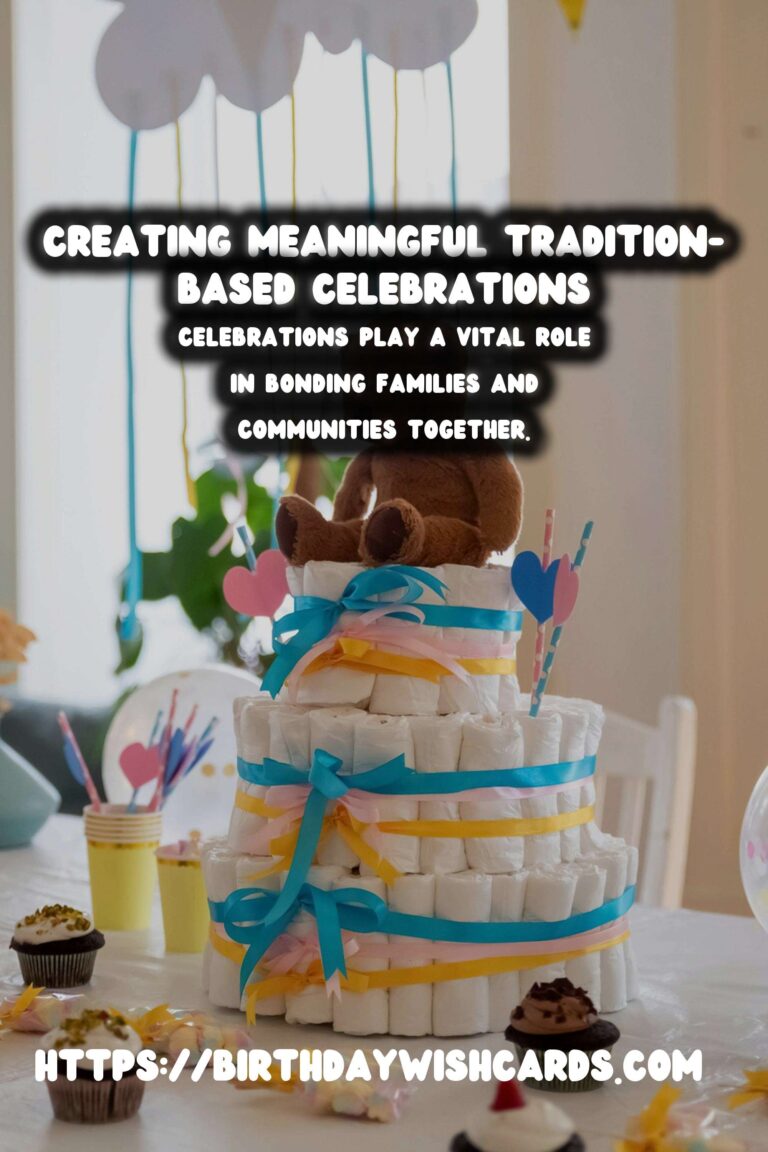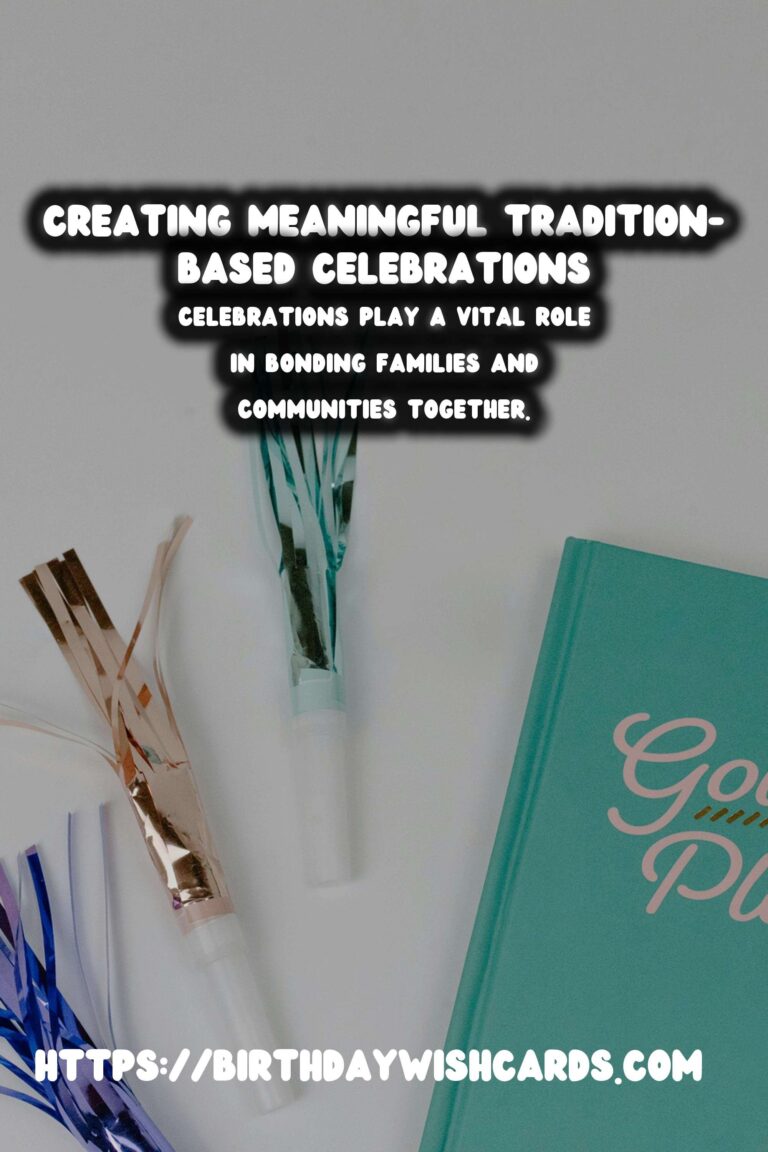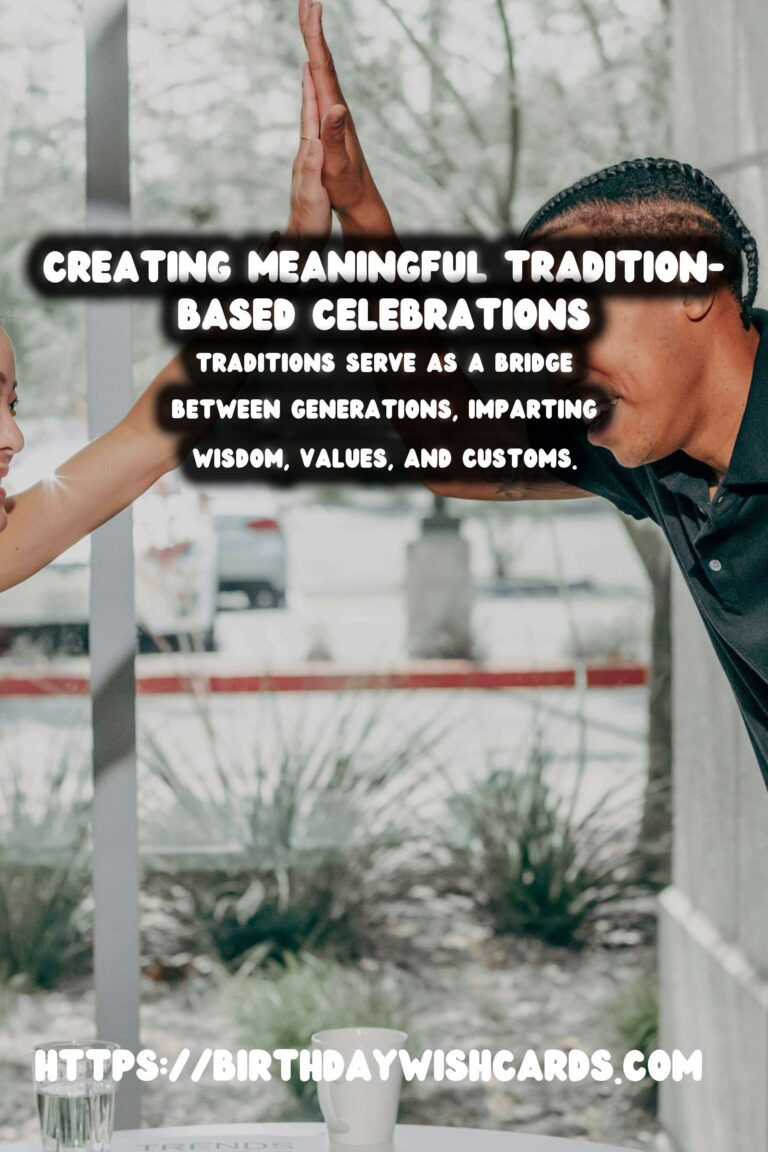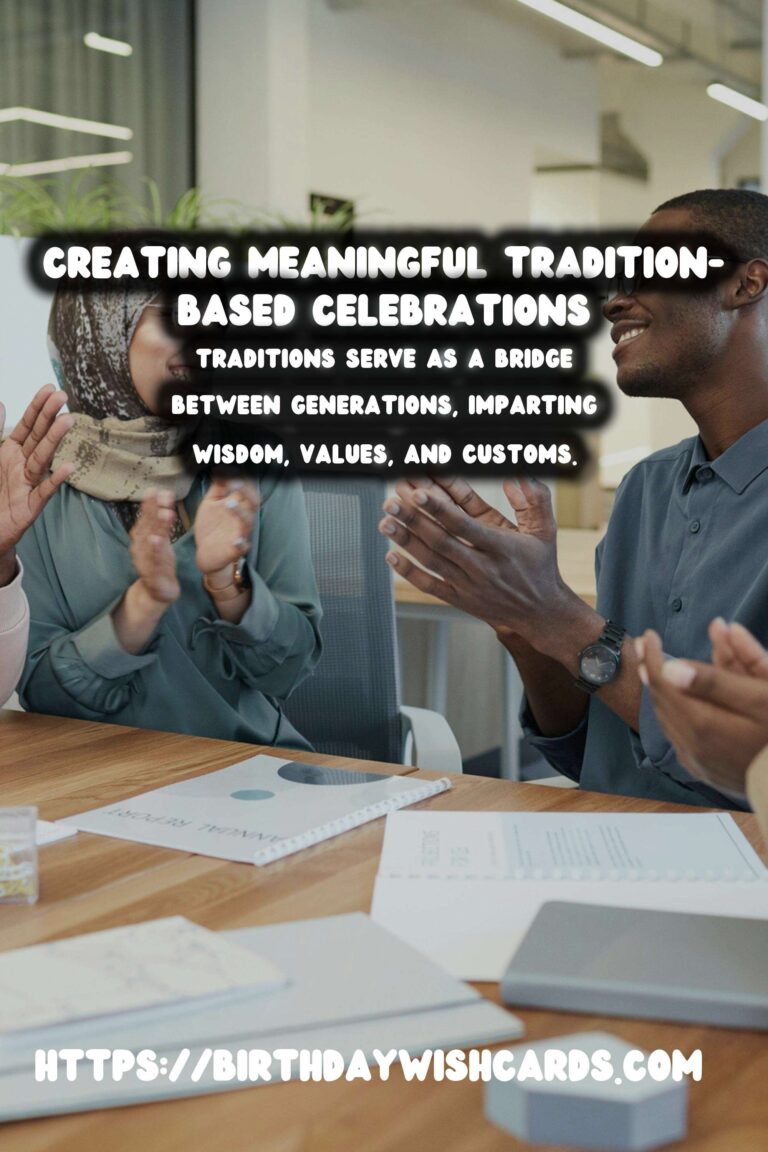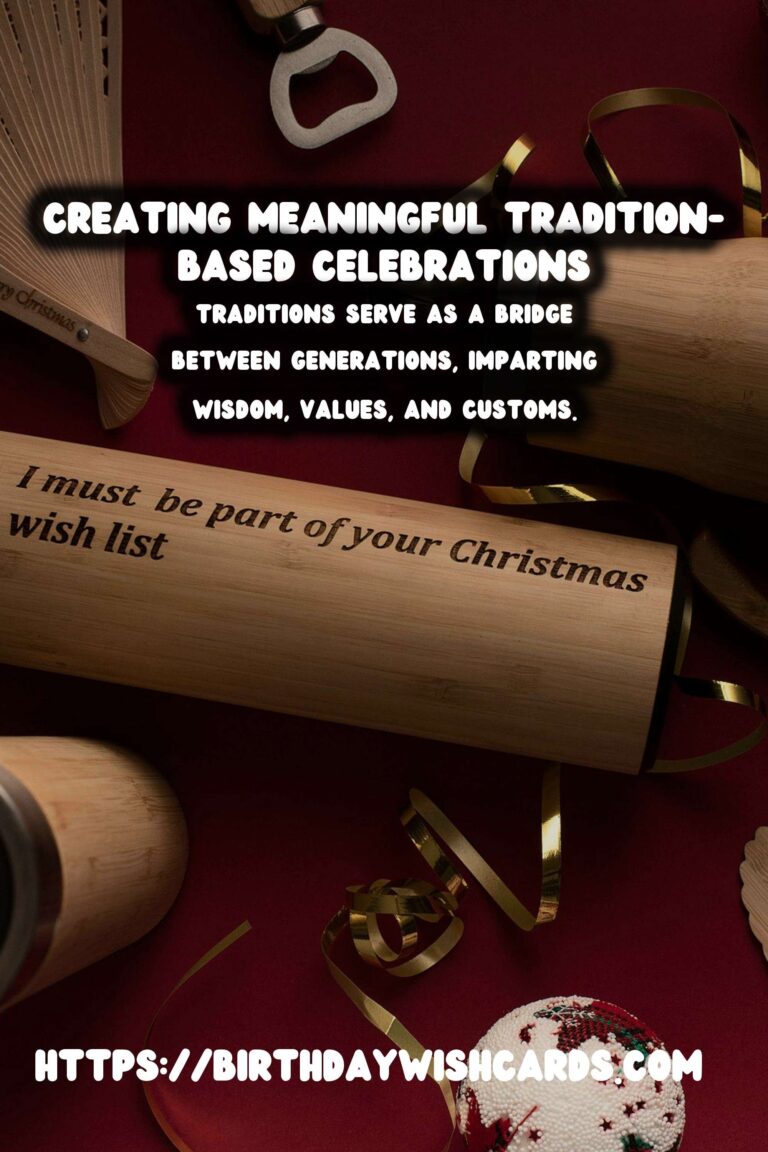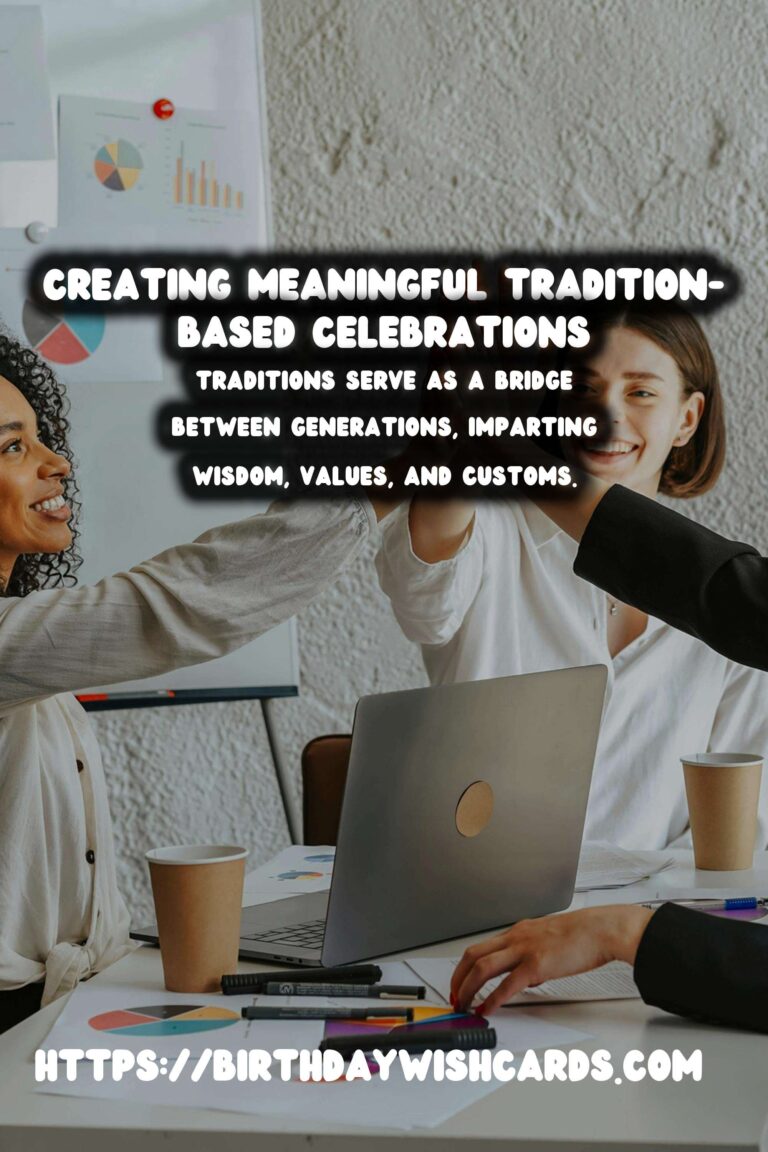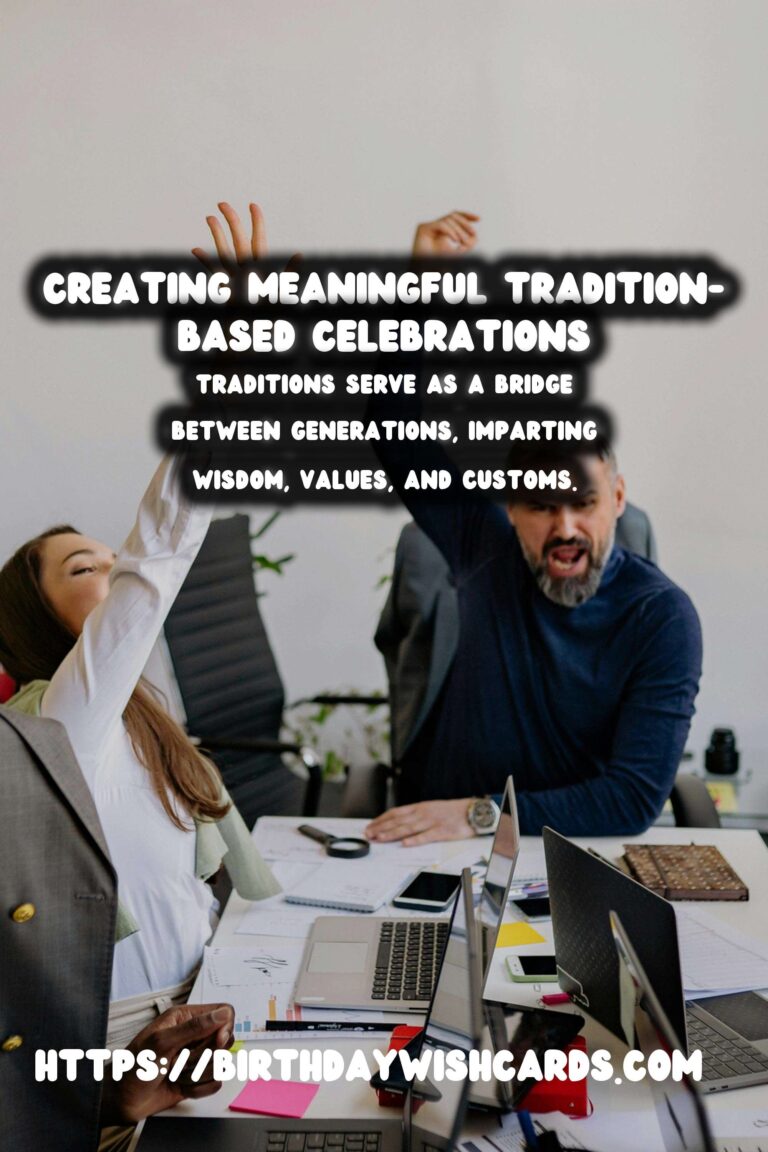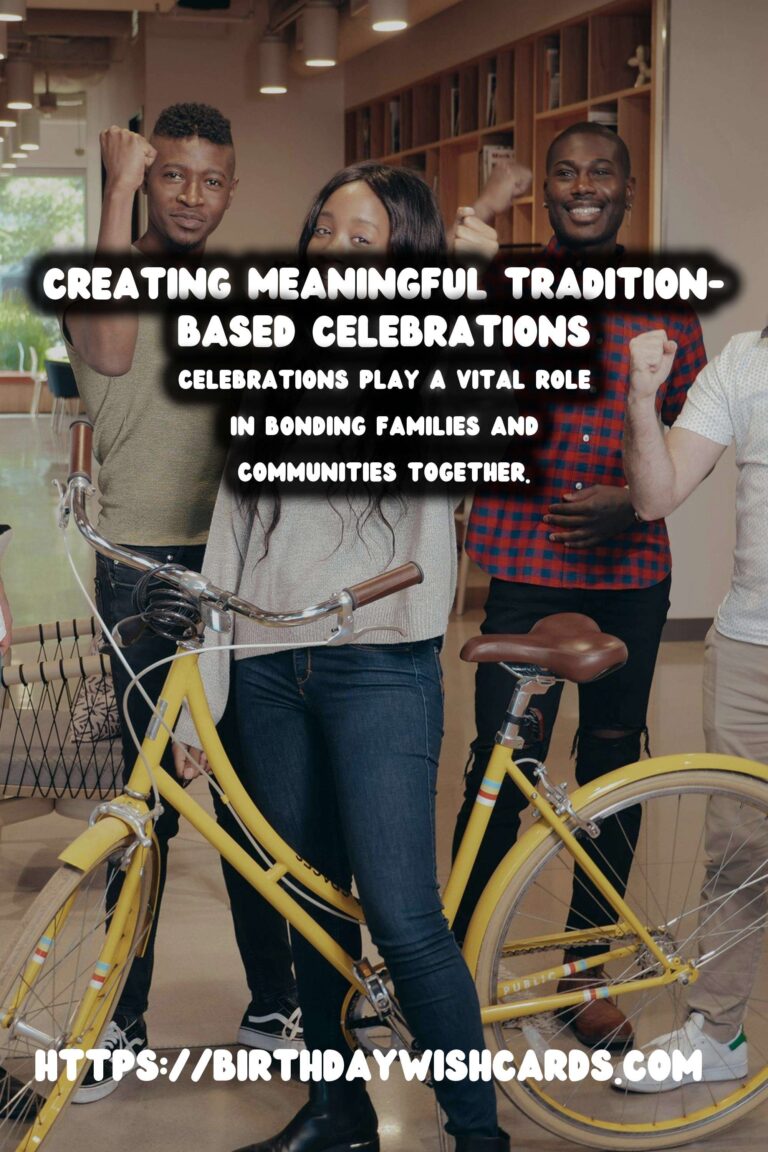
Celebrations play a vital role in bonding families and communities together. These events, steeped in tradition, can be employed to nurture connections, share values, and honor cultural heritage. In this article, we will explore simple ways to create tradition-based celebration ideas that cater to your specific community or family background. Let’s delve into the art of cultivating meaningful celebrations!
1. Understanding the Importance of Traditions
Traditions serve as a bridge between generations, imparting wisdom, values, and customs. They help to create a sense of belonging and identity within a community. Before diving into specific celebration ideas, it’s essential to understand what traditions resonate with you and those you wish to celebrate with. Reflecting on personal family’s customs or cultural practices can inspire innovative celebration ideas.
2. Assessing Your Community’s Background
Determining the cultural and historical background of your community will help in creating relevant celebrations. Engage with community members, conduct surveys, or participate in local events to gather insight into shared values and customs. This assessment creates a foundation for tradition-based celebrations that are meaningful and inclusive.
3. Incorporating Local Ingredients and Resources
One simple way to highlight traditions is through local food. Organizing a potluck where community members bring traditional dishes can be a fantastic way to celebrate diverse cuisines. Research local recipes that have been passed down through generations, or adapt them with modern twists. Emphasizing locally sourced ingredients not only supports local farmers but also immerses everyone in the community’s gastronomical heritage.
4. Storytelling Traditions
Every culture has its myths, legends, and historical events worth celebrating. Organize storytelling nights where families or community members can recount tales that reflect their cultural heritage. This could involve inviting a local historian or an elder who can share firsthand experiences that provide insights into your community’s traditions.
5. Crafting Handmade Decorations
Integrating craft activities into your celebration can create a more personalized touch. Encourage participants to create decorations that reflect cultural icons or symbols. This could involve painting, sewing, or crafting items that are emblematic of your heritage or family traditions. Not only does this enhance the spirit of celebration, but it also allows participants to connect emotionally with their roots.
6. Traditional Games and Activities
Incorporate traditional games that have been enjoyed by generations into your celebrations. These games can range from outdoor sports to board games that carry cultural significance. Organizing tournaments or friendly matches can infuse a competitive spirit, while simultaneously fostering camaraderie.
7. Celebrating with Music and Dance
No celebration is complete without music and dance! Explore traditional music styles that resonate with your community’s background. If possible, invite local musicians or offer performance slots for community members who wish to showcase their talents. Dancing can also be a significant aspect, so consider teaching participants traditional dances that symbolize unity and joy.
8. Creating Intergenerational Connections
Encouraging interaction between different age groups can be enriching. Organize mentoring sessions where elders can teach younger members about traditional crafts, languages, or skills. This not only preserves traditions but also builds relationships across generations, enhancing the depth of your celebration.
9. Establishing a Theme
Establishing an overarching theme for your celebration can set the tone and guide the activities. This theme can be based on cultural values, historical events, or a combination of both. A theme makes planning simpler as it provides a reference point for decoration, food, and activities.
10. Documenting the Celebration
Remember to document the events of your celebration. Capture photos and videos, and encourage participants to share their experiences. This documentation can be leveraged for future celebrations, ensuring that the legacy of tradition is not lost over time. Additionally, creating a scrapbook or online gallery can serve as a beautiful reminder of the cherished memories.
Conclusion
Creating tradition-based celebration ideas can be simple and fulfilling when approached with heart and creativity. By understanding your community’s background, incorporating local resources, and fostering intergenerational connections, you can create memorable events that honor your heritage and bring people together. Start planning your next celebration by applying these simple steps, and watch as your festivities flourish with joy and tradition.
Celebrations play a vital role in bonding families and communities together. Traditions serve as a bridge between generations, imparting wisdom, values, and customs. 
